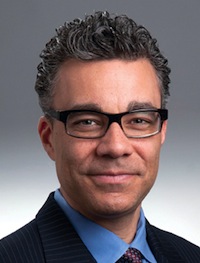
Before the financial crisis, few in the VA business could have predicted that Jackson National Life would survive the industry’s shakeout so handily. At the time, Jackson’s VA prices wasn’t even among the 10 top sellers. Its prices were about 30 bps above the competition’s.
Yet over the past three years, Jackson has climbed from 14th to third in individual VA sales, behind Prudential and MetLife. Its conservative hedging strategy and relatively small book of VA business—still only about $60 billion—turned out to be two of its biggest advantages.
The $107 billion company’s other big asset is its Perspective series of VAs. The contract’s combination of a smorgasbord of investment options with a guaranteed lifetime withdrawal benefit has appealed to a lot of independent advisors (some of whom work in Jackson-affiliated broker-dealers) who like the idea of performing risky high-wire acts with a net.
Indeed, Perspective II, and its companion Perspective L, have proven so popular (combined 2010 sales, $12.5 bn) that when the CEO of Jackson’s British parent, Prudential plc, hinted publicly last spring about “de-risking” Perspective, his loose cannonball instantly exploded into headlines in an investment advisors trade magazine.
 Speculation about Jackson has since been cooled by news that it will restrict investment in only in certain high-risk equity subaccounts. But uncertainty remains about the company’s plans. To shed light on them, RIJ recently interviewed Jackson National executive vice president Clifford Jack (right), in a reprise of an interview two years ago.
Speculation about Jackson has since been cooled by news that it will restrict investment in only in certain high-risk equity subaccounts. But uncertainty remains about the company’s plans. To shed light on them, RIJ recently interviewed Jackson National executive vice president Clifford Jack (right), in a reprise of an interview two years ago.
RIJ: Many people have been wondering what changes might be in store for your variable annuity.
Jack: We are committed to the product chassis that we have in Perspective II. We’ve talked before about our cafeteria-style approach and allowing advisors to have some freedom in investing their clients underlying assets. The changes we’ll make in 2011 will be consistent with what we did in 2009 and 2010. But there will always be times when we look at the overall situation and make determinations.
We made a multitude of product changes prior to, in midst of, and since the crisis, and we always expect to make changes in our product line to balance stakeholder interests. We have over-communicated with our clients since the articles [about Jackson de-risking] have come out, to assure clients that we are very comfortable with the VA marketplace. We view it as business as usual.
RIJ: Are you concerned that you might alienate some advisors by changing such a successful product?
Jack: It’s a matter of balance. I’d say that, as a public company, you have multiple stakeholders. Regulators, employees, shareholders, clients, advisors and their broker dealers are all our clients, so we constantly try to balance the stakeholders’ interests. We look at the cost of hedging liabilities and charge whatever we think is an appropriate cost to maintain the guarantees in any market environment.
Going into the crisis, we felt comfortable with our pricing. We’ve made a clear commitment to accept whatever the market environment is and price appropriately. If it ever gets too expensive to provide guarantees—say, if the VIX doubled—we would do things differently. But we wouldn’t take on more risk.
|
In a May 31 SEC filing, Jackson National Life said that, effective August 29, 2011, it would close the following variable annuity investment options to all separate account investors, but leave them available to Funds of Funds:
Also effective August 29, 2011, the JNL/BlackRock Global Allocation Fund no longer utilizes a master-feeder structure. |
RIJ: Other VA issuers have gone in the direction of providing less room for active investing. You’re not headed in that direction, apparently.
Jack: We have not forced or asked our advisors to make a choice between passive and active. There clearly are advisors who believe in passive investing, who believe you can’t consistently outperform the benchmarks. There’s another group of advisors who believe in active investing, and there are those who believe in a blend. Our view is that all of that should be brought inside a product that also provides lifetime income guarantees. If you’re a passive investor, and if you’re of a certain age, you can buy a cheap, passive portfolio [from us]. Our focus is on the protection of the clients’ guaranteed income.”
I believe that the simplified products, the dummied-down or de-risked products, are not in the consumer’s best interest. We have a complex product that we make less complex by giving advisors the tools to simplify it for their clients. That’s very expensive to do, but we want to tell a complex story. We have a cafeteria approach versus a bundled approach. That’s more difficult to navigate through. But it’s in the best interest of the customer. We’ll stay committed to the complex product and spend more money on education to make it understood. We bet on that approach prior to the crisis and we think it’s important today.
RIJ: Are you conceding the RIA space?
Jack: We know that space well. We have a large RIA. We know that some of our competitors are pursuing no-load variable annuities and we’ll watch that trend closely. But we don’t believe that there’s a first-move advantage in no-load VAs. If they show any sales movement of significance, we’d be extremely well positioned in to enter that space. But it has not shown promise. A significant number of clients are not yet placing assets there. We already have level-load features that align the advisors’ interests with their clients’. So, should that market ever take off, we have a version similar to a no-load for advisors who are interested.
RIJ: You’ve still only got a $60 billion VA book of business, well below Prudential’s $109.1 billion and MetLife’s $132.3 billion, and you’ve got Prudential plc’s strength behind you. But some people are concerned that you might have gained too much market share too fast. How would you respond?
Jack: The question we often get is about concentration risk. People ask, ‘Are you selling too much VA?’ The answer is no, we’re very comfortable with the current sales level. That said, there are a number of things to keep in mind. First, How much are you selling versus how much of your balance sheet is tied to a single product? To be clear, we are very well balanced. From a liability standpoint, the balance sheet is in a very comfortable position. We look at liabilities tied to fees, to underwriting revenues—that is, to life insurance—and to our spread-based business, which includes indexed and fixed annuities. There’s no question that the VA has become a larger component of Jackson’s balance sheet recently, but we’re comfortable with where we stand.
If VA sales continue to outpace all else, what will that mean? Will we have to shut down or stunt VA growth? The answer is most likely not, because there are other levers you can pull as a management team. We’ve tried to mix organic with inorganic growth. For instance, we recently bought a large closed block of life insurance from another provider—at a very attractive return on capital, because of our efficient systems. That helped. There are times in the cycle when you can pick that up on a value basis, and there are times when things are over-priced. We like to pick up assets at the right time in the cycle.
RIJ: Of course, no one would want to buy blocks of VAs with underwater income riders during the crisis. But it must have been a good time to expand “organically.”
Jack: Coming out of the crisis, when the industry was consolidating, it was a fortuitious time to originate VA business. The best time to originate any equity-based product is at a low point in the market, because you have the benefit of a rising fee environment. If equities go up, obviously you get paid more.
We didn’t predict that equities would go up. We decided that, because interest rates were low and there were no counter-correlated assets, retirees and advisors had few options, and they should be more open to guaranteed income than ever and that there would be a greater need for VAs. So we decided to stay in front of advisors every day with the same story, and that enabled us to take advantage of the timing.
Conversely, we didn’t say, ‘The market is at a peak, so we’ll dial back and become less aggressive.’ We didn’t do that. We said, ‘It doesn’t matter that market is all time high, we’ll continue to buy the hedges and protect against the down side.’ If somebody says, ‘I’m worried about your fast growth,’ I say, Why? We’re dealing with the risk today the same way we dealt with it post-crisis—we bought the hedges that protect us against the downside.
RIJ: What’s your view of the future?
Jack: I have no idea if the market will go up or down, but it’s important to recognize that when we price we think of the markets. We buy the hedges for protection in down markets. We’re not trying to make money with our hedging program. We’re not running a hedge fund. We’re buying protection that’s readily available in the market. We protect against interest rate fluctuation and equity fluctuation on the downside, and therein lies the cost of the hedges. That’s why we charge what we charge. We had no hedge breakage in the crisis. No one could have anticipated that the market would decline as much as it did, but when it did our hedges worked. We had the worst market we have ever seen and we had no hedge breakage. That’s the key for anybody to understand. We saw a 45%-50% percent decline, and our hedges worked. If the market goes down 30% from here, our hedges will work.
RIJ: So Jackson National has no plans to put its VA business in low gear?
Jack: We are comfortable with where we are and with our growth plans. The growth plans assume business as usual. Without getting into details, they also assume management action to be able to grow and diversify the balance sheet for the three legs we discussed, the fee, the spread and the underwriting businesses. If we did nothing and our balance sheet tilted too much in any direction, that would impact our new-business origination. But, as you suggested, $60 billion is relatively small in the context of Prudential plc.
RIJ: Thank you, Cliff.
A note on Jackson National’s affiliated distribution network
National Planning Holdings, an $83 billion broker-dealer network and RIA, did $857 million in Jackson VA sales in the first nine months of 2010, which represented 8% of Jackson VA sales in that period, according to Jackson National.
National Planning Holdings includes two independent broker-dealers, National Planning Corporation and INVEST Financial Corp.; a registered investment advisor, Investment Centers of America; and a financial advisory firm, SII Investments, Inc.
Jackson National also owns a separately managed accounts firm, Curian Capital, which manages $6.2 billion. NPH handled $260 million of sales by Curian in the first nine months of 2010, or 17% of Curian sales.
© 2011 RIJ Publishing LLC. All rights reserved.


